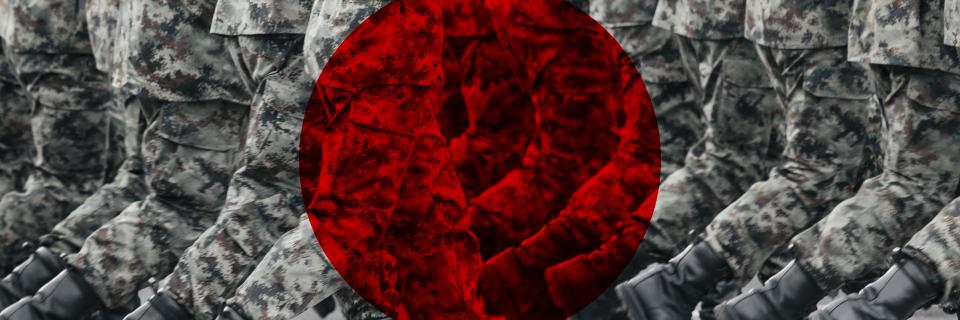Fr James J. Mylet, MM, describes the shift in military policy in Japan, where he lived for more than 40 years. The following article was published in the March-April 2023 issue of NewsNotes.
Following the end of World War II, with all the atrocities committed by Japan and its colonialization in the Asia-Pacific area, a revised Japanese Constitution was imposed by the occupying Allied Powers, led by U.S. forces. Article 9 in the Japanese Constitution states: “The state formally renounces the right of belligerency and aims at international peace based on justice and order.” The article continues, “to accomplish these aims, armed forces with war potential will not be maintained.”
During a visit to Washington in January, Japanese Prime Minister Fumio Kishida mentioned several major shifts in Japan’s defense policy. First was the decision to allow Japan to possess enemy base strike capability by increasing the defense budget to 2% of GDP by 2027. A part of the plan is to purchase Tomahawk cruise missiles able to reach North Korea, China, and Russia.
This goes well beyond self-defense and Article 9. According to the highly regarded Japanese daily newspaper Asahi Shimbun, it goes beyond what the Japanese public will be willing to support.
President Joe Biden commended Japan’s commitment to fundamentally strengthen its defense capabilities and reinforce deterrence to common threats. The Japanese Constitution still bars a NATO type military alliance.
What has been done more covertly in the past is now taking place openly. Presently there are joint military planning and exercises between the U.S. and Japan, with South Korea involved at times. Many in Japan would like to see more of an independent stance affirming Article 9.
Prime Minister Kishida stated that Japan is facing the most challenging and complex security environment in recent history. Things changed with the Russian invasion of Ukraine. This was a huge shock to society in Japan and to the national security agencies, moving them to create new military capabilities.
There is also the nuclear threat from North Korea, with North Korean missiles regularly flying over Japan into the Pacific. China poses another threat with its aggressive military assertion in the East China Sea. There also is a tension over the dual claim by China and Japan to the Senkaku (Diaoyu) Islands, with its abundant fish stocks and a possible rich source of natural gas.
Japan’s new budget strategy is being implemented without any debate in the parliament and without an adequate explanation to the public. Therefore, the strategy is felt to be undemocratic and it is predicted that Kishida will not obtain the broad support and understanding of the Japanese public.
The first major shift in Japanese defense policy came in 2014 under Prime Minister Shinzo Abe. He reinterpreted the Japanese Constitution to allow for the exercise of the right of collective self-defense, allowing the Japanese to participate in UN peacekeeping missions. This was hotly debated with much opposition.
With Russia’s aggression against Ukraine breaching the very foundation of the rules that shape international order, how is Japan to respond?
One viewpoint is that Ukraine’s defense capability against Russia was seen as insufficient, thus failing to discourage and deter Russian aggression. This is inaccurate, but according to this viewpoint, Japan needs adequate deterrence. In the listing of Global Firepower (2023 World Military Strength Ranking) Japan ranks 8th in the world and has about 250,000 active military personnel. So rather than appearing anemic, Japan is on the cusp of becoming a military superpower.
Concerns have been raised that Japan’s possession of a counterstrike capability could backfire. It could prompt regional destabilization, be seen as a threat to other countries, and cause an arms race in the region. This rearmament of Japan would be opposed by a large number of people in Japan.
As the only country to be the victim of a nuclear attack and with pacifist principles in Article 9 of its constitution, Japan has long pushed for nuclear disarmament. However, the language in the U.S.-Japan agreement is ambivalent, saying that in the event of an “emergency”, nuclear weapons would be allowed.
Obviously, Japan’s defense policy is evolving, with several factors entering into play. The revised Japanese Constitution was imposed by the occupying U.S. forces. A number of people want the Constitution to be rewritten by the Japanese. Disregard for the world order and aggression on the world stage is a real concern.
The Japanese Catholic Church’s position is that PM. Kishida is abandoning the exclusively defense-oriented posture and shifting Japan toward becoming a military superpower. This could even lead to using civilian seaports and airports for military purposes. The Church’s position is that Japan should follow the path of peace through dialogue, especially because of its aggressive history in Asia, working toward reconciliation and solidarity with countries in the region. Pope Francis, on his visit to Japan in 2019, also stressed peace through dialogue.
Image modified from photo by Filip Andrejevic on Unsplash

